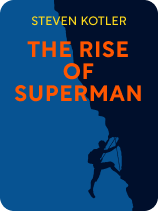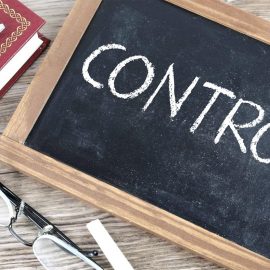

This article is an excerpt from the Shortform book guide to "The Rise of Superman" by Steven Kotler. Shortform has the world's best summaries and analyses of books you should be reading.
Like this article? Sign up for a free trial here.
Want to know how to get into a flow state? What does Steven Kotler recommend? What are the stages of flow?
According to journalist Steven Kotler, you can’t enter a flow state, or a state of deep focus, on command. In his book The Rise of Superman, he explains how to get into a flow state, based on following the four stages of flow.
Read on to learn how to get into a flow state, according to Kotler’s advice.
Get Into a Flow State With Kotler’s Method
In The Rise of Superman, Steven Kotler explains how to get into a flow state, defining flow as a mental state of deep, sustained focus. When in flow, you experience optimal engagement, enjoyment, and performance while doing an activity. Psychologist Mihaly Csikszentmihalyi originated the concept of flow in the 1960s while studying motivation and performance. When he interviewed different people about the times in their lives when they’d performed at their best, the participants all mentioned this state of effortless focus.
(Shortform note: In Flow, Csikszentmihalyi describes two surveys he conducted to study what made experiences enjoyable: one interviewing experts and the other surveying average individuals. Through the descriptions his interviewees provided, Csikszentmihalyi found that activities you enjoy naturally encourage the full engagement and peak performance effects of flow—in other words, enjoyment of a task is the foundation of flow. He concluded that for something to be enjoyable, you must feel a sense of growth and accomplishment and that you’ve changed as a person. To encourage more enjoyment in your life, he suggests you regularly seek new challenges in your daily activities.)
According to Kotler, we can learn a lot about flow from extreme athletes because of the high risk level of their sports. With their lives on the line, these athletes have mastered the ability to become intensely focused and tune into the states of their minds. However, while athletes specialize in it, anyone can train themselves to get into a flow state.
(Shortform note: In Emotional Intelligence, Daniel Goleman agrees with Kotler that flow is trainable, adding that you can learn how to get into a flow state through motivation, discipline, and practice. Discipline and practice are generally considered key to athletic achievement, so it may be the case that disciplined practice in itself leads to athletic gains, with or without the presence of flow. However, discipline and practice likely aren’t enough for extreme athletes, who, due to the risk involved with their sport, must achieve an exceptionally high level of focus in addition to athletic prowess.)
#1: Pre-Flow (Challenge Yourself)
In order to learn how to get into a flow state, you must first experience a phase of challenge and frustration. Without a high degree of mental exertion, your brain won’t release flow-inducing signals. For example, if your overall goal is to program a mobile app, the mentally taxing challenge you experience might be resolving a difficult bug in the code.
Kotler insists that these feelings of frustration and stress are not only normal, but necessary. Unlike other pleasurable mental states you might experience while, for instance, eating food or relaxing to music, flow only occurs when you’re pushing yourself to new limits.
(Shortform note: The authors of Make It Stick agree with Kotler on the importance of struggling with a challenge, explaining that the harder your brain works, the deeper it stores the information that it learns. They call these challenges “desirable difficulties” and argue that they’re much more effective for long-term learning than easy challenges.)
#2: Pre-Flow (Take a Break)
After you’ve learned how to get into the first stage of a pre-flow state, to move past the first struggle phase and progress toward flow, Kotler says that you must take a break and step away from the challenge. When you do this, you release the frustration you’ve been experiencing and make way for the five neurochemicals of flow to arrive. For example, if you’ve been stuck trying to debug your code for a while, do something unrelated that you enjoy such as baking cookies or taking a walk.
(Shortform note: According to other experts, you should take breaks because your brain continues working on a problem subconsciously when you divert your attention to another activity. In other words, your mind continues to piece together information without your conscious analytical problem-solving getting in the way. However, be sure to find a break activity that relaxes your central nervous system. While this type of activity might differ from person to person, experts advise you to avoid tasks that cause even low levels of stress, like sorting through your email or cleaning your room. Other activities, such as meditation or taking a walk outdoors, might be more restful for your nervous system.)
#3: Flow (Refocus)
Once you’ve relaxed your mind, refocus on your task, as doing so will often trigger you to get into a flow state. With your frustrations cleared away, your intuition can take over and your brain can release the neurotransmitters that allow you to be absorbed in accomplishing your task. You’ll experience a sense of control and fluidity while working.
For example, when you make a new attempt to debug your code, you might find yourself noticing mistakes in your code that you’d overlooked when your brain was overwhelmed and tired.
(Shortform note: Other experts offer insights into why you can refocus after clearing away your frustrations. They explain that when you’re stressed, your body produces cortisol hormones. You need a moderate level of stress hormones to achieve peak productivity, but too much cortisol can interfere with memory and increase anxiety, making it harder to solve problems under stress. However, when you clear away your frustrations and reduce your stress hormones to a moderate level, cortisol becomes beneficial and sharpens your memory and focus.)
#4: Post-Flow (Rest and Repeat)
After you fully get into a flow state and it has come to an end, Kotler recommends you take time to relax and process what you’ve learned. Maintaining a state of intense focus uses a lot of energy, and it’s important to recharge. In our fast-paced world, it’s easy to rush into more challenges rather than allow ourselves time to rest. However, if you don’t give yourself time to recharge, you may find it harder to get into the flow again.
To continue the coding example, give your mind time to recover rather than launching immediately into another coding project. This allows your mind to process what you’ve learned in resolving the bug, ensuring that the information will stick with you and that you’ll be able to focus on your next challenge.
(Shortform note: In The 5 AM Club, Robin Sharma agrees with Kotler on the importance of rest, elaborating that mastery requires your mental, physical, and spiritual health to be operating at their best. Similar to Kotler’s flow cycle, Sharma views the path toward high achievement as a pendulum swinging between high performance and deep rest. Periods of rest are invaluable because they allow your brain to “supercompensate”: grow sharper and stronger by processing and integrating everything you’ve learned. He recommends several ways to rest, which include traveling, working on your hobbies, and spending time with positive people.)

———End of Preview———
Like what you just read? Read the rest of the world's best book summary and analysis of Steven Kotler's "The Rise of Superman" at Shortform.
Here's what you'll find in our full The Rise of Superman summary:
- The importance of mastering flow for any activity
- The neuroscience behind the flow state
- Techniques for how you can encourage deep focus into your life






